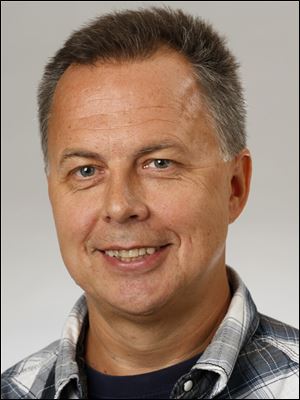
Putin gets mantle of peacemaker for 61st birthday
10/13/2013
Mike Sigov.
Russian President Vladimir Putin had a double reason to celebrate last week - his 61st birthday and his emergence as a peacemaker in the Middle East.
Though there were no reports of President Obama congratulating his Russian counterpart with his birthday, Mr. Putin's new role was largely a gift from the U.S.
The Russian-brokered deal shields the Assad regime from a military strike as long as he appears to cooperate with international efforts to rid Syria of chemical weapons. The deal has put Mr. Putin into the public eye and placed the U.S. with its threats of military involvement in the back seat.
The validity of the deal, however, is suspect.
Mr. Putin's primary motive is to make sure Assad - his ally and fellow autocrat - stays in power, ending the so-called Arab Spring that has deposed other despots in the region. Mr. Putin blames the U.S. unilateral involvement, for the Arab Spring. If unchecked, he reckons, it could spread to Russia's borders and undermine his effort to subjugate the former Soviet vassal states.
The bad news is Mr. Putin can succeed because the former KGB operative has played his cards right both domestically and internationally so far.
At home, he has turned Russia's notorious corruption to his own advantage and succeeded in undermining the fledgling democracy, becoming the country's de-facto dictator. Internationally, he has translated Russia's position as the world's largest oil and natural gas producer into considerable political clout.
Prone to the Cold-War-time zero-sum mentality in relations with the United States, he has undermined the U.S.-led efforts to bring the civil war in Syria to a diplomatic resolution. Moreover, he has successfully cast himself as a peacemaker.
In the process, he:
- supported Assad militarily by supplying weapons.
- turned a blind eye to Russia's ally Iran sending military units to fight for Assad.
- shielded Assad diplomatically, by undermining U.S.-led efforts to impose strict sanctions against Syria, and -- most recently -- from a sanction that would punish Assad for the use of chemical weapons, which are in the category of weapons of mass destruction.
- helped prolong the conflict in Syria with more and more al-Qaeda affiliated fighters joining in to fight against Assad, making any military involvement against him appear counterproductive.
- used Americans' war-wariness and the lack of President Obama's support in congress to sell him on a highly dubious chemical disarmament plan that many experts agree is unfeasible.
There is still a way to turn the table on Mr. Putin, make the Syria chemical disarmament plan work, and restore the U.S. as the primary peace broker in the region. But that would involve support in Congress of President Obama's threat of a military involvement in Syria. Unless Assad perceives the treat as imminent -- should he not be totally cooperative with the chemical disarmament in Syria -- he is not going to give up the weapons he perceives as a deterrent against the nuclear-armed Israel.
Unfortunately, given the political crisis in Washington, congressional support of President Obama's policy in Syria is not likely to materialize.
The worst in all this is that a precedent is being set, in which a dictator is allowed to use weapons of mass destruction with impunity.
In this situation, one can only lament the fact that the U.S. chooses to play along in an international sham designed by Mr. Putin - a sham master extraordinaire.
Mike Sigov, a former Russian journalist in Moscow, is a U.S. citizen and a staff writer for The Blade.
Contact Mike Sigov at: sigov@theblade.com, 419-724-6089, or on Twitter @mikesigovblade.